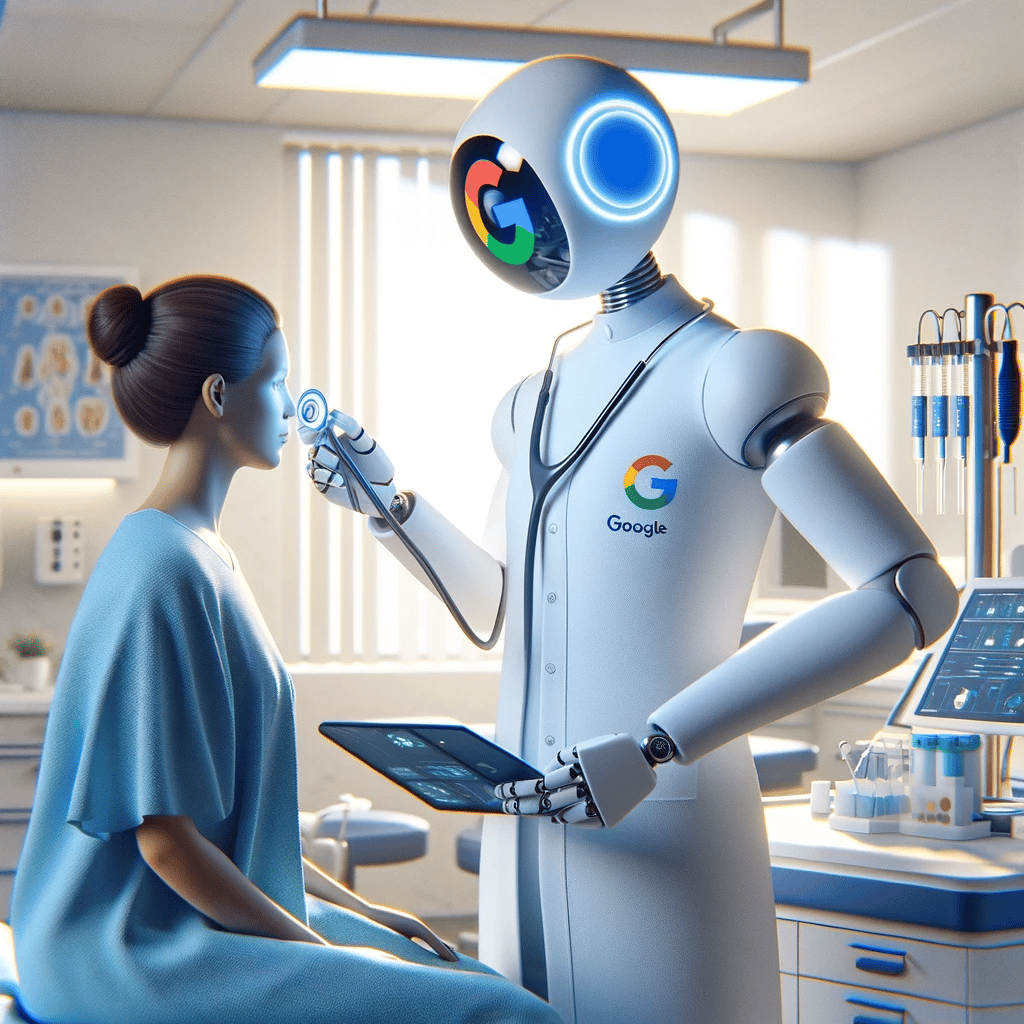
Welcome back.
Today we take a look at how Google AI is doing a better job of diagnosing patients than real world doctors, and also explore whether our fingerprints are unique as previously thought?
So let’s take a look at what’s featured in our latest edition..
Today's Edition
📰 Google AI makes better diagnoses than doctors
A groundbreaking study reveals that an AI chatbot, developed using a large language model by Google, has demonstrated exceptional proficiency in medical diagnostics, surpassing board-certified physicians in accuracy. The chatbot, specializing in respiratory and cardiovascular conditions, excelled in empathy and information gathering during simulated patient interactions, according to the study published on January 11 in the arXiv preprint repository, which has not undergone peer review.

Named the Articulate Medical Intelligence Explorer (AMIE), this experimental chatbot is yet to be tested on actual patients, having been evaluated only through interactions with actors portraying medical conditions. Co-author Alan Karthikesalingam from Google Health emphasizes caution in interpreting these findings, while acknowledging the chatbot's potential in democratizing healthcare access. However, Harvard Medical School’s Adam Rodman warns that medicine extends beyond data collection, emphasizing the irreplaceable value of human relationships in healthcare.
The development of this AI system faced significant challenges, particularly the scarcity of real-world medical dialogue for training purposes. To overcome this, the Google Health team, including AI scientist Vivek Natarajan, employed innovative training methods. The AI was trained through simulated dialogues, playing roles of both patient and physician, and even a critic evaluating these interactions, enabling a comprehensive learning experience.
To evaluate AMIE, researchers arranged text-based consultations between the AI and trained actors simulating 149 clinical scenarios, comparing its performance against 20 board-certified clinicians. The AI matched or exceeded the physicians in diagnostic accuracy across six medical specialties and outperformed them in 24 of 26 conversational quality criteria. However, Karthikesalingam notes the disadvantage human doctors faced in unfamiliar text-based interactions and the AI's inherent advantage in crafting eloquent responses.
Moving forward, the team aims to investigate potential biases in the AI to ensure equitable service across diverse populations. Ethical concerns and privacy issues in AI usage, as highlighted by Daniel Ting from Duke-NUS Medical School, also form critical aspects of future research. These steps are crucial in preparing the AI for potential real-world application and addressing the uncertainties surrounding data privacy in commercial AI platforms.
📰 Our fingerprints may not be unique, claims AI
Columbia University researchers are questioning the long-held belief in the uniqueness of individual fingerprints. Using an AI tool trained on 60,000 fingerprints, the team found that the AI could determine, with 75-90% accuracy, if prints from different fingers belonged to the same person. This revelation, under the supervision of Prof Hod Lipson, a roboticist at the university, indicates a significant shift in understanding fingerprint uniqueness, although the exact workings of the AI remain unclear.
The study indicates that the AI's analysis of fingerprints differs from traditional forensic methods, which focus on minutiae - the patterns of ridges, endings, and forks. Instead, the AI seems to evaluate the curvature and angles of swirls at the center of fingerprints. Prof Lipson and his team, including undergraduate student Gabe Guo, were initially skeptical of these results, requiring extensive verification due to the unexpected outcome.
This breakthrough has potential implications for both biometric security, like fingerprint identification for devices, and forensic science. For example, the AI tool could potentially link fingerprints from different crime scenes to the same individual, a task currently not feasible with traditional methods. However, the research team acknowledges the need for further study, especially since the AI was trained on complete, high-quality prints, unlike the partial or lower quality prints often found in real-world situations.
Despite the promising findings, experts like Dr. Sarah Fieldhouse from Staffordshire University express skepticism regarding the study's immediate impact on criminal casework. Concerns revolve around the AI's focus areas and whether they remain consistent over time and under various conditions, questions difficult to answer given the current uncertainty about how exactly the AI operates. Interestingly, the uniqueness of fingerprints was also indirectly challenged by an anecdote about twins in Cheshire, who, according to their grandmother, can unlock each other's iPhones using their fingerprints, hinting at the complexity of the genetic processes forming fingerprints, akin to Turing's theories on animal markings.
🗣 AI “Quote of the Day”
"Every fingerprint may tell a story, but it's the unseen narrative between the lines that challenges our notions of identity."

Created with ChatGPT / DALL-E
🚀 AI Tech Spotlight
🔍 SecondNature - Role play any conversation
Second Nature offers a sales training software that utilizes AI for role-play, helping customer-facing teams enhance their skills. The software provides lifelike AI personas for various training scenarios, such as cold calls, product pitches, and job interviews. It has proven effective in improving deal closure rates, decreasing onboarding time, and enhancing customer satisfaction. Used by top companies, this AI-driven tool offers a unique approach to sales training, allowing for scalable, personalized training experiences.
🗓 On This Day In History
The Anglo-Zulu War began this week as the British sought control over Zululand in eastern South Africa.


